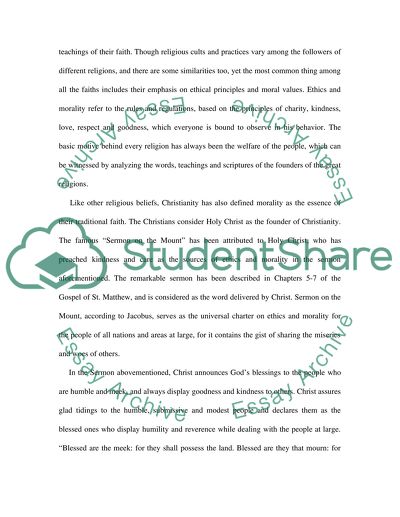Cite this document
(“Ethic and Morality in Religion Essay Example | Topics and Well Written Essays - 2000 words”, n.d.)
Retrieved from https://studentshare.org/religion-and-theology/1546732-ethics-and-morality-in-relegion
Retrieved from https://studentshare.org/religion-and-theology/1546732-ethics-and-morality-in-relegion
(Ethic and Morality in Religion Essay Example | Topics and Well Written Essays - 2000 Words)
https://studentshare.org/religion-and-theology/1546732-ethics-and-morality-in-relegion.
https://studentshare.org/religion-and-theology/1546732-ethics-and-morality-in-relegion.
“Ethic and Morality in Religion Essay Example | Topics and Well Written Essays - 2000 Words”, n.d. https://studentshare.org/religion-and-theology/1546732-ethics-and-morality-in-relegion.


